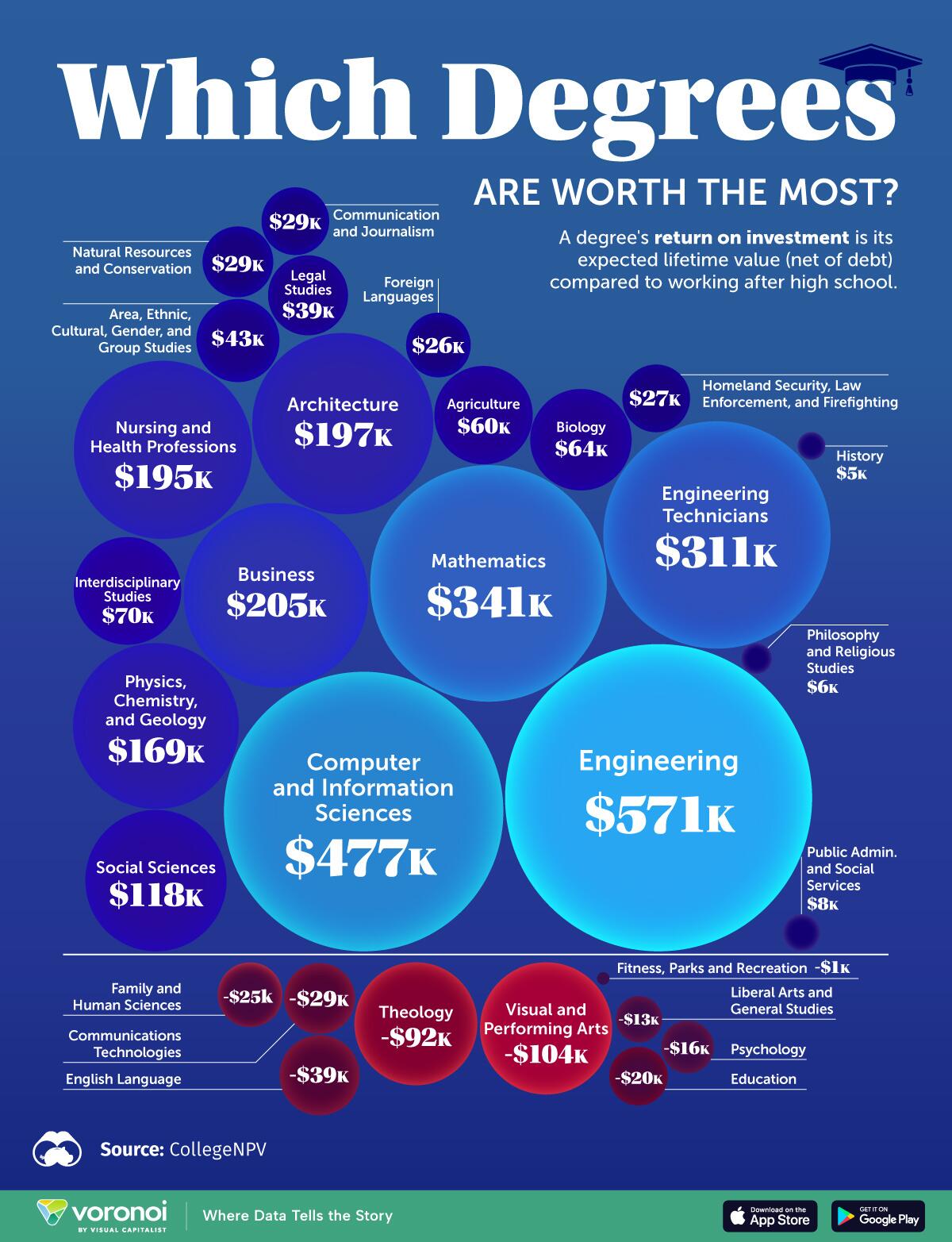See other National News Articles
Title: Which College Degrees Have The Best Return On Investment?
Source:
[None]
URL Source: https://www.zerohedge.com/personal- ... es-have-best-return-investment
Published: Oct 19, 2024
Author: Tyler Durden
Post Date: 2024-10-19 07:31:22 by Horse
Keywords: None
Views: 249
Comments: 2
Career prospects, and especially expected lifetime salaries, can be a strong motivator or deterrent in pursuing certain college degrees. Not all degrees guarantee higher lifetime earnings compared to entering the workforce after high school without a degree - as some degrees may end up costing more than their financial benefits. This graphic, via Visual Capitalist's Kayla Zhu, shows the average return on investment of a degree in the U.S., based on analysis from CollegeNPV of data from the U.S. Department of Education and Bureau of Labor Statistics Engineering, computer and information sciences, mathematics, and engineering technician degrees are the most valuable degrees in the U.S. when looking at expected lifetime income minus debt compared to working right after high school without a degree. As for specific programs, Harvard University’s computer science degree ranks first for ROI, according to CollegeNPV. Graduates of this program can expect an ROI of over $4 million in their lifetime, with $256,539 in median income and $14,000 in median debt. On the other end, humanities degrees like visual and performing arts, theology, and English are among the least valuable degrees when looking at lifetime earnings. With a negative ROI of about $39,000, English language programs have also experienced the greatest decrease in graduates, with 32% fewer students completing these programs compared to 10 years prior. 
Post Comment Private Reply Ignore Thread
Top • Page Up • Full Thread • Page Down • Bottom/Latest
#1. To: Horse (#0)
Where does 12th Century African Lesbian Interpretive Dance Studies rank? “I am not one of those weak-spirited, sappy Americans who want to be liked by all the people around them. I don’t care if people hate my guts; I assume most of them do. The important question is whether they are in a position to do anything about it. My affections, being concentrated over a few people, are not spread all over Hell in a vile attempt to placate sulky, worthless shits.” - William S Burroughs
A Silicon Valley joke. A physics grad asks why this works that way. An engineer asks how it works. A liberal arts grad asks, "Do you want fries with that?" The Truth of 911 Shall Set You Free From The Lie
humanities degrees like visual and performing arts, theology, and English are among the least valuable degrees
#2. To: Dakmar (#1)
Top • Page Up • Full Thread • Page Down • Bottom/Latest